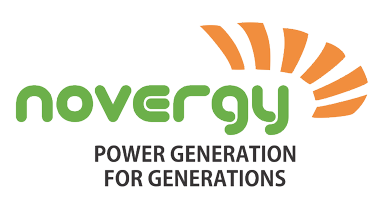What is Net metering?
Net metering is a type of metering methodology commonly used in solar systems in many countries around the globe. It allows residential and commercial customers of utility grid power to implement solar on-grid batteryless systems without having to worry what do with the extra power. Because net metering allows them to generate their own electricity from solar power to feed electricity they do not use back into the grid. Many countries, states, and provinces have passed net metering laws in different formats.
Net metering is a billing mechanism that credits solar energy system owners for the electricity they add to the grid. For example, if an industrial electric customer has a PV system on their rooftop or in their premises, it may generate more solar power than the industry uses during certain periods or few hours of the day. This may also happen during holidays or days when the factory is having a shutdown
If this industry applies for net-metering, the electricity meter will run backwards to provide a credit against what electricity is consumed at other periods when the industries electricity use exceeds the solar system’s output. Or otherwise based on the local regulations the meter may record both the import of electricity from the utility and the export of surplus energy to the DISCOM.
In both of above scenarios, customers are only billed for the “net” energy they use. Hence the name “NET METERING”.
A net metering system usually requires certain set of standards to be complied with. The major equipment in the solar system has to meet the relevant standards laid down either by the Government authorities or the local DISCOM (utility grid). Further the solar system installation also has to comply with the relevant technical requirements. Most authorities or DISCOMs also lay down the conditions in terms of a minimum and a maximum solar system KWp capacity for being eligible for Net Metering. Also DISCOMs usually require a feasibility check before approving the solar system installation by a customer.
A special type of net meter or bidirectional meter is required to be installed in such cases. This meter is usually approved by the local DISCOM or government authorities.
What is Gross metering ?
Many governments and DISCOMs lay down the requirement of a solar rooftop or captive system to be installed under a Gross metering mechanism. In such systems the solar power generated is directly fed to the grid. These types of systems are connected to the grid by a separate connection and have a separate meter which is usually termed as a Gross meter. The solar energy fed to the DISCOM (Utility grid) is purchased by the DISCOM at a special tariff called as Feed in Tariff (FiT). Usually the Feed-in-tariff is much higher than the regular tariff which the DISCOM charges the customer.
Hence it becomes very attractive for customers to install a solar system and apply for Gross Metering scheme with the DISCOM.
A gross metering system usually requires certain set of standards to be complied with. The major equipment in the solar system has to meet the relevant standards laid down either by the Government authorities or the local DISCOM (utility grid). Further the solar system installation also has to comply with the relevant technical requirements. Most authorities or DISCOMs also lay down the conditions in terms of a minimum and a maximum solar system KWp capacity for being eligible for Gross Metering. Also DISCOMs usually require a feasibility check before approving the solar system installation by a customer.
A special type of Solar Gross meter is required to be installed in such cases. This meter is usually approved by the local DISCOM or government authorities.
Conclusion
With the huge and ever-increasing popularity of on grid solar systems, Net metering and Gross metering are very beneficial options for most solar consumers.
Howerver, net metering may not be of much use to customers who are having continuous operations or who may have a very small solar system installed in comparision to their connected loads.
Further net metering is also of no use who intend to only generate solar power and do not have any self consumption. For example customers who intend to be a net exporter of energy.
Because many DISCOMs do not allow a customer to claim payment from them in case they are net exporters. Such consumers can apply for Gross metering or Feed in Tariff to avail full benefit of their solar system.

